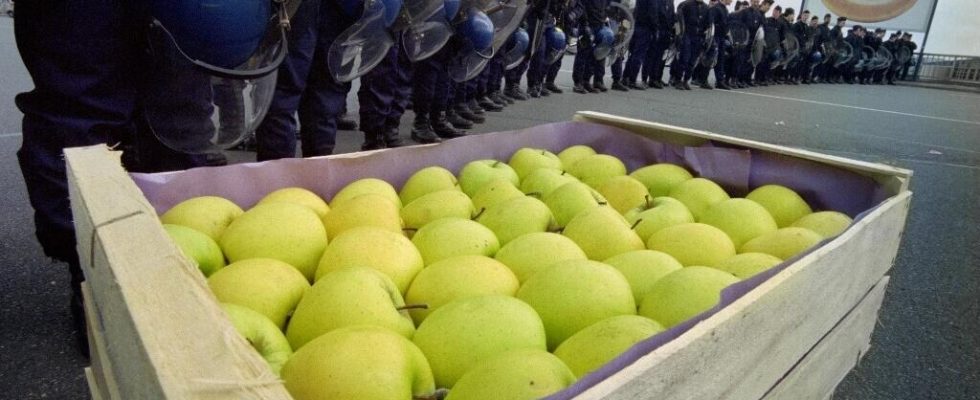Agricultural unions are calling for a blockade of Paris this Monday, January 29. The demands vary depending on the demonstrators. They relate, among other things, to international competition and the low incomes of certain farmers. The Egalim laws supposed to force large retailers and manufacturers to pay fair prices to farmers are not always respected. The government has also announced sanctions against three companies. To get around these pitfalls, some farmers are moving towards another model: that of short circuits and direct sales.
2 mins
We are in Yvelines, in the Paris region. Alban Augé is a beekeeper. He gives instructions to around fifteen volunteers who have come to help him place wood chips at the foot of a hedge. These volunteers are members of its AMAP, to Association for the Maintenance of Peasant Agriculture, a model of partnership between producers and consumers.
The connection with customers is one of the reasons why La Clairière paysanne sells in a short circuit. “ The second desire also is just to control our income. We decide the selling price of our products and not someone else. I don’t understand how we can produce and sell at a price that we haven’t decided because when we go below the cost price, that means we work 55 hours or more per week and that we lose money “.
Also listen:Anger of farmers in France: “They do not live with dignity from their work”
Many farmers who sell to large retailers or manufacturers denounce purchase prices that are too low. International competition is also singled out. “ It’s not possible to align when we don’t have the same production costs, when we don’t have the same labor costs. Obviously we are preserved by doing direct and local sales. We are protected from all these problems of unfair competition.”
Also listen:Organic food: a weakened economic model
The day’s volunteer customers are fans of eating local.
Félix Lemignon pleads for regulating the supply of supermarkets: “ He has the right to take apples from the end of Europe, but we should still tell him that he must take a certain quota from farmers near him. “.
Members of Parliament recommended, in a report, the establishment of a floor price for agricultural products.
The Egalim laws: better remunerate producers
First voted on in 2018, then in 2021 and 2023, the Egalim 1 then 2 laws require large retailers and manufacturers to take into account farmers’ production costs, based on the price of raw materials. Their aim is to better remunerate farmers, by rebalancing commercial relations with manufacturers and distributors.
The problem is that in their race for low prices, food players (food manufacturers or distribution giants) are accused of circumventing these laws. For producers, they are ineffective.
The Prime Minister, Gabriel Attal, announced that controls would be strengthened. Three manufacturers are already in the government’s sights and risk sanctions of up to 2% of their turnover.
The government is therefore increasing the pressure as the annual negotiations between suppliers and large retailers have entered the home stretch. They have until Wednesday to set the prices which will appear on supermarket shelves from February 1.
Also listen:Agriculture: are we producing too much?
